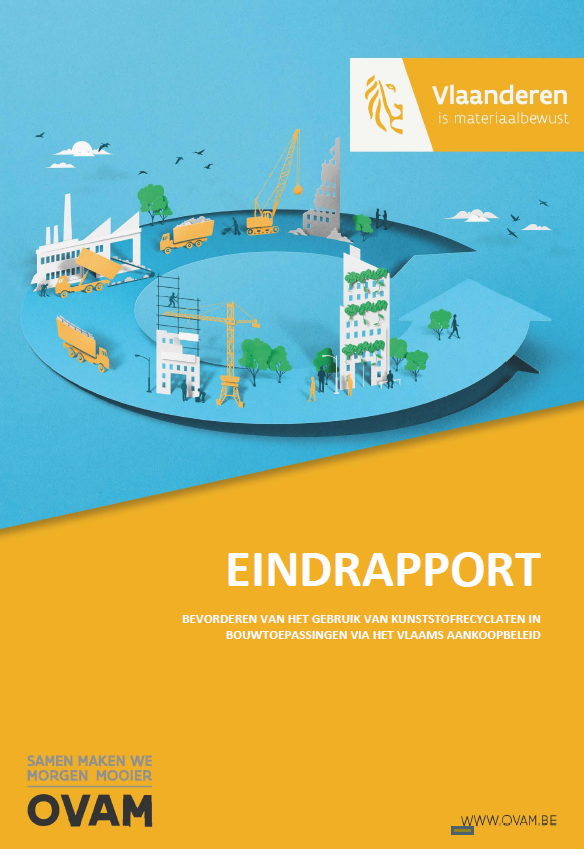On 15 March 2021, OVAM (the Flemish Public Waste Society) published the study conducted for it by Centexbel-VKC on the use of plastic recyclates in construction applications.
Producers usually opt for virgin plastics, amongst others because of their constant quality and low selling prices. But the pressure to use recyclates is increasing. The volume of plastics on the market continues to grow, the collection and sorting of plastics is increasing and focusing on a better quality. Europe will quadruple its plastics recycling capacity by 2030 compared to 2017. And in doing so, the EU is formulating concrete targets for the sales of recyclates.
By order of OVAM, Centexbel-VKC investigated how the sales of plastic recyclates could be promoted in nine building applications, including PVC window profiles, sun screens and insulation. For this purpose, we interviewed producers and screened contract documents and other documents on elements preventing the use of plastic recyclate. We found that the texts do refer to the use of recyclate for concrete or steel structures, but not for plastic structures. Construction companies seem to prefer to work with materials, products and systems that have been in use for a long time, such as concrete, asphalt, ceramics, metal and wood, which is reflected in the standard specifications that contain little information about the building applications of plastics.
Contracting authorities must be able to justify and demonstrate why certain materials are prescribed or better rated. They must also be able to reliably check and monitor this during implementation (through certificates, technical data sheets, labels, etc.). To a large extent, they lack the knowledge and resources to do this themselves for each job and to follow it up.
However, the time is ripe to permit and even encourage the use of other materials, such as plastic variants made from recyclate. Standard specifications are updated every six years. This is work for experts, and because adapting standards is a slow and difficult process, we recommend that (new) tender documents no longer include technical specifications, such as the material of which the construction product or work should consist, but formulate functional requirements about use, life span, appearance and functionality. This will provide more room for innovation.
OVAM will now continue to disseminate the knowledge and recommendations from this study in order to see them embedded in the specifications of the Flemish government. This can be done, for instance, in cooperation agreements concluded with Flemish agencies and departments or in the form of award criteria for circular building contracts.
Final report
Promoting the use of plastic recyclates in building applications through the Flemish procurement policy
Published by OVAM - Legal Depot number: 2016
Study carried out by Centexbel-VKC





